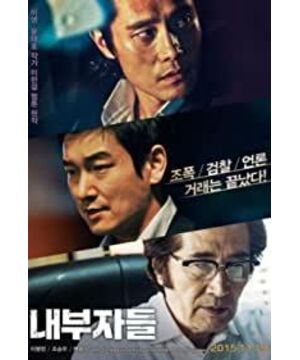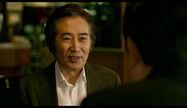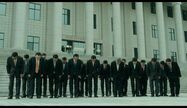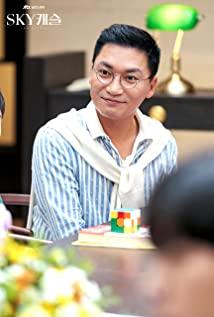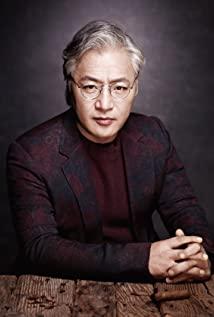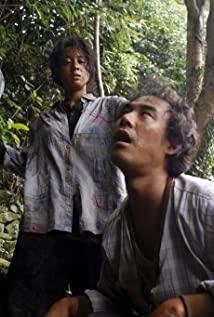There has always been a problem in Korea and even in today's world, that the administration takes precedence over the judiciary. South Korea is a relatively standard three-power structure of separation of powers. The executive Yuan, the Legislative Yuan (Parliament) and the courts are in charge of the country's executive, legislative and judicial powers, operating independently but supervising each other. Its judicial system has undergone the changes of Japanese occupation and the takeover by the United States. This special background has caused the procuratorate to be extremely independent in terms of power. From a higher level, although the procuratorate is nominally subordinate to the Ministry of Justice, even the Minister of Justice has no right to interfere with the prosecutor's case handling. , that is, in handling cases, the prosecutor himself is the highest officer and has full independence and freedom. For subordinates, South Korea implements a system of procuratorial-led investigation. When it comes to specific cases, the police cannot handle the case independently. All cases must be reviewed by the prosecutor, who decides what evidence to use and how to collect evidence. From these aspects, South Korean prosecutors are more than their own attributes of "public interest representatives" and "legal supervisors", and they lack supervision. However, the existence of the prosecutor system protects the interests of the people to some extent and strikes a blow. Bad officials, so the Korean people generally have a favorable impression of prosecutors.
At the beginning of the movie, An Shangjiu exposed the incident of car bribery and political donations in the future, which made people think it was an ordinary political and business collusion movie, but the director was very good at telling stories. When the camera turned, he started flashing back what happened two years ago, explaining all the background and characters. Causal relationship. With the change of An Shangjiu's perspective, the audience's emotions were gradually mobilized, while Yu Changxun's role as a prosecutor gave the emotions a legal and justice outlet. But whether these two characters are in pursuit of justice, I don't think so. For An Shangjiu, he just wanted a better life for himself. His former ambitions were buried in his heart with his broken hands, and he also had fears. Yu Changxun wants to pursue justice, but is hindered by birth and interpersonal relationships. What he wants more may be the fairness that ordinary people want.
Editor Li said that "the public are all idiots, they care about what they are doing, let them bark, nothing will be left behind" is really heartbreaking. What does law and justice mean to us ordinary people in a society ruled by law? Follow the video maybe We will have an answer.
Eating hot pot in front of a rural bookstore, Yu Changxun persuaded An Shangjiu to hand over the original version and recite Article 2 of the Constitution, "All men are created equal..." This constitution is a satire for the following plot. In the film, along with the testimony provided by An Shangjiu, the evidence was deemed unreliable by corrupt character, and the legal trial was replaced by a moral trial. What about legal equality? no! That guarantees the implementation of the law, and perhaps guarantees that ordinary people get the rights they deserve.
Yu Changxun was threatened and forced to give up security, thinking that the truth and justice would be buried here, and there was another jailbreak and violent threats against Editor Li to tell the truth. At this time, a violent trial replaced the law. What is impressive is that the prosecutor went to see Ann in prison for the second time after getting the recording. He said to Ann, "You will take care of yourself in the future, and leave everything to me", and Ann said, "Is your father okay? I hope you don't follow me, go see him more now," he said while showing nervous little eyes and body movements. The phrase "words uttered in situations where life is threatened cannot be used as evidence" turns violence back into its useless form. Of course, this is just a game between An and the prosecutor. If the prosecutor went to the prison and told An that he had entered the game, it would really make people think that the ending of the matter was solved by violence, which became a tragic movie, and the result turned again. Therefore, what you get after violent catharsis is not what you want, and seeking justice also requires paying a price. While ensuring rights, the law also increases the difficulty of obtaining substantive justice.
In the end, the prosecutor brought down the other party as an insider, but behind him not only the law and evidence, but also the social status of the prosecutor and the moral image in front of the public. So the law just gives ordinary people a chance to seek the justice they want.
In fact, there are two points buried in the film that show that An Shangjiu is not an ordinary person without power. One is that when the prosecutor found the video posted in the lobby, he was unprepared, even terrified. The second is that he has always been clear that justice is not what he wants, power is, that's why he always just wants to make deals and climb up.
It is worth complaining that in the film, the heroine said that she would leave with Ann, go to the Maldives to enjoy life, drink Mojito representing love, and meet Ann with the outgoing prosecutor. Shangjiu is always referred to as "Mojito's Maldives", and the portrayal of the status of Korean women is also very real, becoming a victim of power and money transactions and power struggles, and becoming an accessory to men. The results of the prosecutor's threat and the heroine's threat are also significantly different. There is also an obvious contrast. After the prosecutor left office and became a lawyer, he called on the phone and said, "The adultery law has been changed. I can't help it. You should blame the person who changed it..." Once again, he satirized the administration and the judiciary. So the prosecutor and the heroine after leaving office are the real ordinary people in the film, and they are also the epitome of ordinary people in our reality. This is the real sad ending.
In fact, from the status of women in the film, there is a saying that "it's not right for women to ask men for compensation after the end of their relationship", which means that women's demand for compensation is actually placing themselves in a weak position. If you want to pursue feminism, this should not be the case. . But I think it is wrong to think this way. It is a human right to ask for mental damage, and it is not just for women. This kind of demand can also be made by men. It is precisely because women have been in the reality and stereotype of being weak and hurt for a long time that this kind of compensation is bound to women, and then tied to women's rights. This is actually a manifestation of women being discriminated against. Not feminism.
View more about Inside Men reviews


